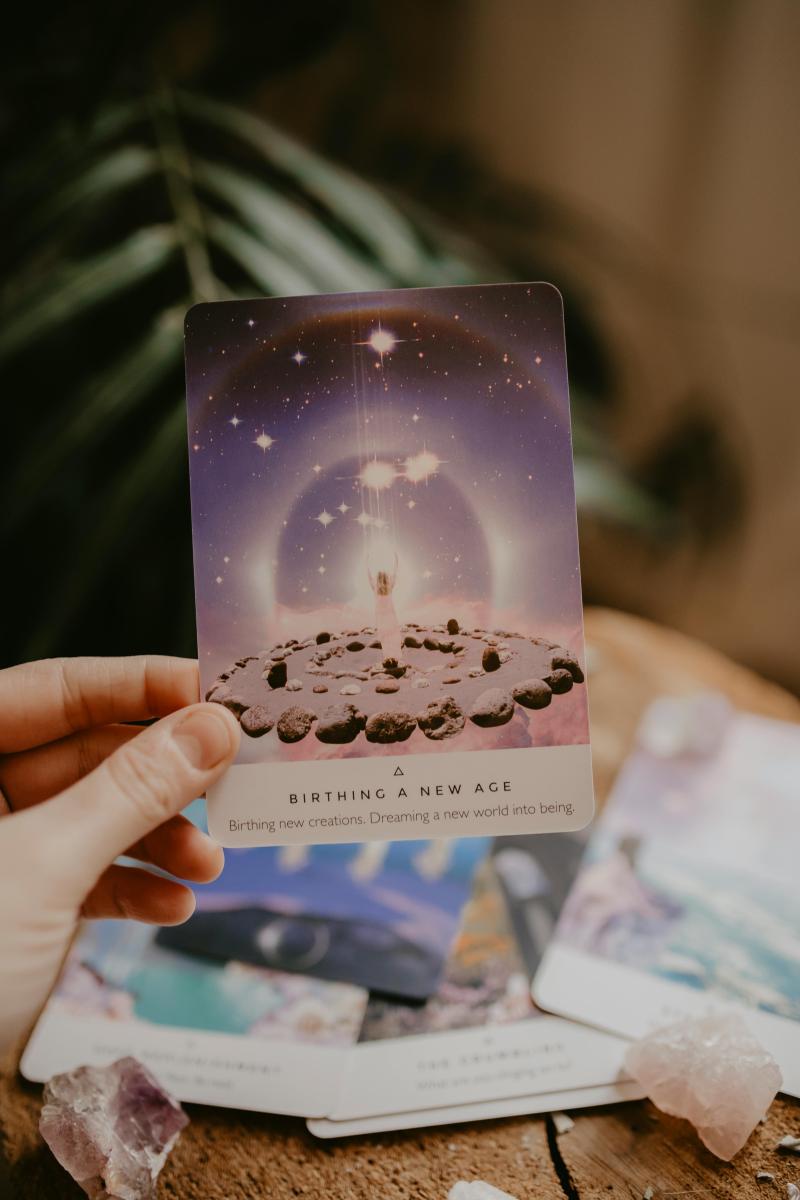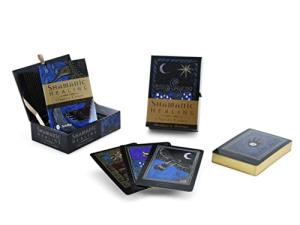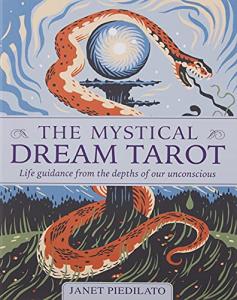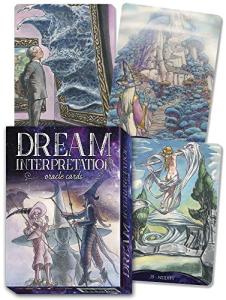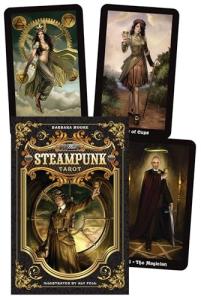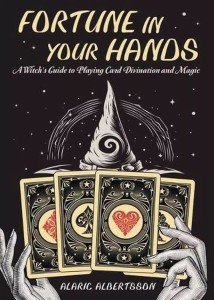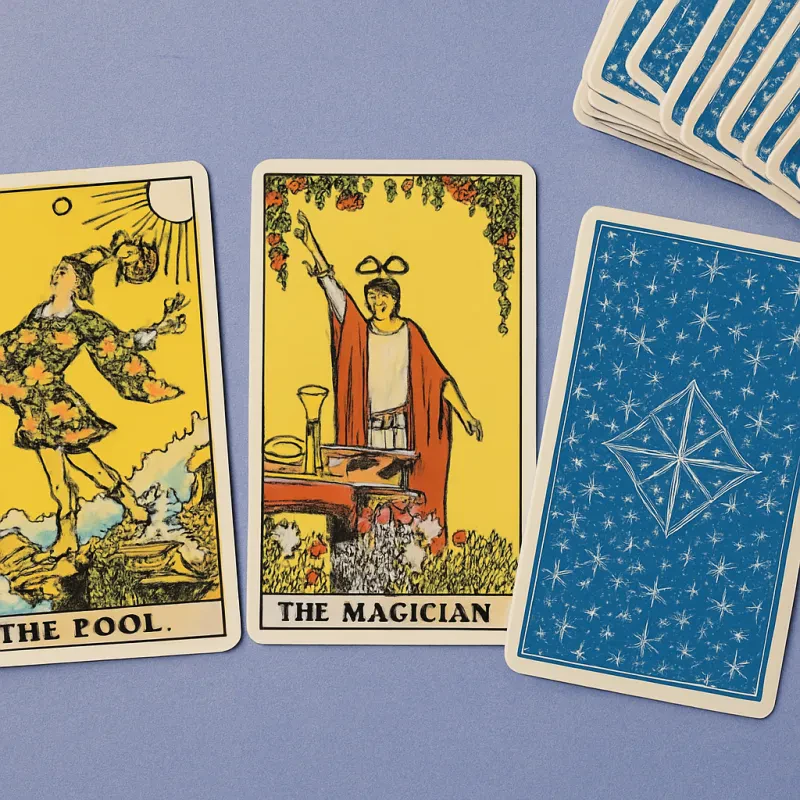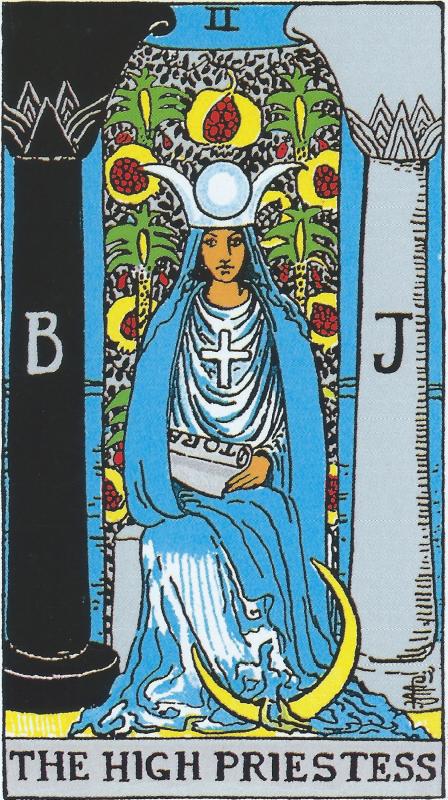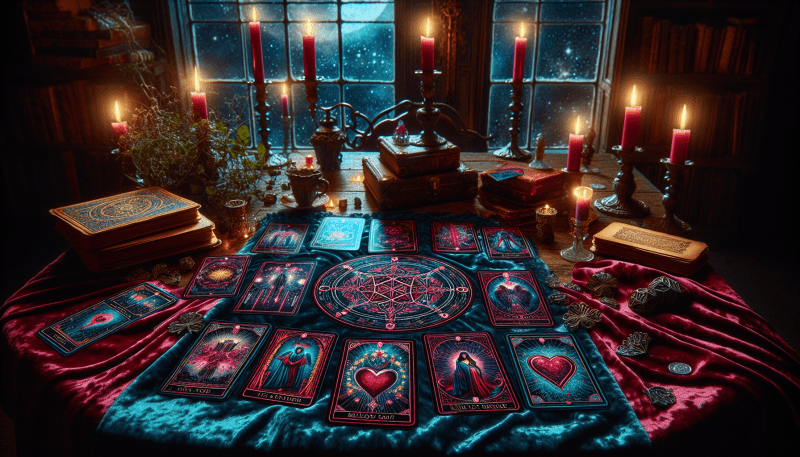Oracle cards are a popular divination tool used by many people around the world to seek guidance, clarity, and insight into various aspects of their lives. Unlike tarot cards, which have a structured system with 78 cards divided into major and minor arcana, oracle cards have no set number of cards or specific meanings. This flexibility allows for a wide range of themes and interpretations, making oracle cards more intuitive and open to personal interpretation.
The imagery on oracle cards can vary greatly, ranging from animals and nature to angels and mythical beings. Each deck is unique and may focus on different aspects of life, such as love, career, spirituality, or personal growth. Some decks may also incorporate affirmations, quotes, or keywords to help guide the reader in their interpretation of the card's message. Oracle cards are often used for daily draws, meditation, journaling, or simply as a tool for self-reflection.
Many people find oracle cards to be a powerful tool for connecting with their intuition and subconscious mind. The messages and symbols on the cards can trigger insights, emotions, or ideas that may not have been consciously recognized before. Whether you are a beginner or experienced reader, oracle cards can be a valuable resource for gaining clarity and perspective on life's challenges and opportunities.
Shamanic Healing Tarot Oracle Deck
Discover ancient wisdom and unlock spiritual healing through the mystical powers of the Shamanic Healing Tarot Oracle Deck
Product information
$24.99 $21.24
Product Review Score
4.86 out of 5 stars
198 reviewsProduct links
Key Differences Between Oracle and Tarot Cards
When it comes to divination tools, Oracle cards and Tarot cards are two popular options that can provide insights and guidance in different ways. While both types of cards can be used for spiritual exploration and self-reflection, there are some key differences between Oracle cards and Tarot cards that are important to understand.
One major difference between Oracle cards and Tarot cards is their structure. Tarot cards are a structured deck with 78 cards divided into two main sections - the Major Arcana and the Minor Arcana. The Major Arcana cards represent significant life events and spiritual lessons, while the Minor Arcana cards focus on everyday experiences and emotions. In contrast, Oracle cards have a more fluid structure and can vary greatly in the number of cards and themes they cover. This flexibility allows Oracle decks to explore a wider range of topics and provide more personalized guidance.
Another key difference between Oracle cards and Tarot cards is their interpretation. Tarot cards have a long history and tradition of symbolism and meaning that can be studied and interpreted in depth. Each card in the Tarot deck has its own unique significance and can be combined with other cards to create complex and nuanced readings. On the other hand, Oracle cards often rely more on intuitive interpretation and can be seen as more straightforward in their messages. While Oracle cards may lack the depth of symbolism found in Tarot cards, they can offer immediate and practical guidance for everyday situations.
Overall, whether you choose to work with Oracle cards or Tarot cards ultimately comes down to personal preference and what resonates with you. Both types of cards can be valuable tools for self-discovery and growth, offering unique insights and perspectives that can help you navigate life's challenges and opportunities. Whichever deck you choose, exploring the world of divination cards can be a fun and enlightening journey.
How to Use Oracle Cards in Readings
To begin, find a quiet and comfortable space where you can relax and focus on your question or intention. Take a few deep breaths to center yourself and shuffle the deck while thinking about your question. Once you feel ready, cut the deck and select a card that resonates with you.
Next, take a moment to really study the imagery on the card. Pay attention to any symbols, colors, or words that stand out to you. Trust your intuition and the feelings that arise as you contemplate the card's message.
As you interpret the card, remember that Oracle cards are meant to be a tool for self-reflection and empowerment. The messages they hold are meant to guide and inspire you, rather than predict the future. Take note of any emotions or insights that come up for you during the reading.
Finally, take the time to journal about your experience and any insights you gained from the reading. Reflect on how the card's message applies to your situation and how you can use this wisdom to move forward in a positive way. Trust in the guidance of the Oracle cards and the messages they bring to you.
Choosing Between Oracle and Tarot for Guidance
When it comes to seeking guidance from mystical tools, Oracle cards and Tarot cards are two popular options that can provide insights and clarity. Both types of cards can be used for divination and self-reflection, but they have their own unique features that set them apart.
Oracle cards are known for their versatility and simplicity. They typically have fewer cards in a deck compared to Tarot cards, making them easier to shuffle and interpret. Oracle cards often have more diverse themes and imagery, allowing for a wide range of interpretations that can resonate with a variety of people. They are great for beginners or those looking for a more intuitive and free-form approach to card reading.
On the other hand, Tarot cards have a rich historical tradition and a structured system of symbolism and meanings. A standard Tarot deck consists of 78 cards divided into Major Arcana and Minor Arcana suits. Each card has its own specific meanings and associations, providing a more detailed and intricate narrative in a reading. Tarot cards are ideal for those who enjoy delving into symbolism and numerology, and who appreciate the depth and complexity of traditional divination practices.
Ultimately, whether you choose Oracle cards or Tarot cards for guidance depends on your personal preferences and the type of insights you are seeking. Both types of cards have their own strengths and can be powerful tools for self-discovery, reflection, and spiritual growth.
